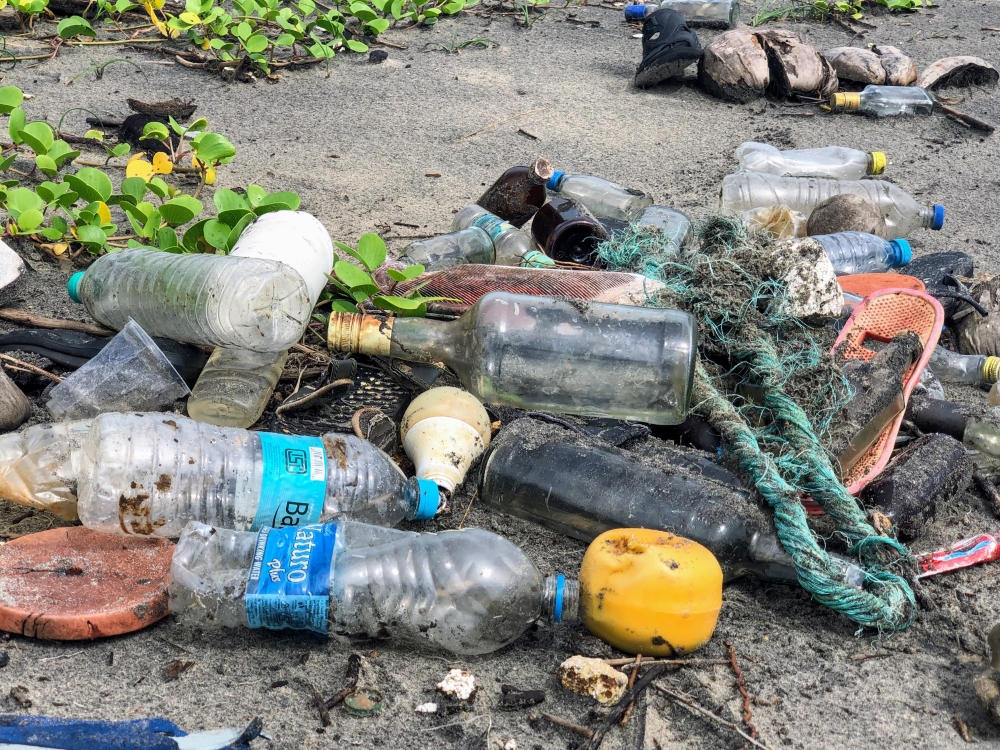The War on Plastic - Going Green isn't Always Black & White!
26 Nov 2018

The war on plastic is a growing concern frequently present in today’s media, and as a result we see the rise of single use plastics – a controversial alternative. However, before a choice in plastics can be made, it is important to understand the factors, implications and rationale behind their use.
So, is using polythene really that bad? It depends entirely on one’s perspective. Everyone wants to help the environment but going green isn’t a black and white issue. Polythene, for example, is recyclable and can be used ten times over. Biodegradable plastics, on the other hand, might sound eco-friendly but they can only be used once.
Plastics get a bad rap – or perhaps we should say ‘wrap’! – because of recent campaigns like Ocean Rescue. The waste in our waters is alarming but plastics haven’t always been bad. Indeed, plastics have revolutionised global distribution, helped manufacturing no end, and boosted the global economy since their introduction in the late 1950. The issue isn’t necessarily plastic but how we manage and dispose of it.
Companies need to think carefully about how they use plastics and how to manage their end-of-life disposal. As a result we’ve witnessed the emergence of different plastics that try to minimise their environmental impact.
The two main types today are polymers (which include polyethylene, polystyrene, and the aforementioned polythene) and newer biodegradable plastics many of which are compostable. However, just because a product is labelled ‘biodegradable’ doesn’t necessarily make it eco-friendly. There’s often a sleight of hand involved. For example, many biodegradable plastics take months if not years to degrade. What’s more, many only degrade mechanically if exposed to certain conditions.
Although the introduction of compostable plastics is a move in the right direction, unfortunately their quality is sometimes dubious. For example, compostable plastic bags aren’t particularly strong and can only be used once before disintegrating. What’s more, the term ‘compostable’ is frequently used loosely. Some products might decompose eventually but this could take years.
Consequently, although many argue that biodegradable plastics are better for the environment, labels can be misleading. Whilst many biodegradables are generally derived from renewable raw materials like starch, cellulose, and soy protein, not all of them are. Indeed, some are still derived from petroleum or made by bacteria through a process of microbial fermentation.
What’s more, some biodegradable plastics still leave some toxic residue, and there’s no legal requirement for them to degrade quickly. They’re not like apple cores that rot away very quickly and can be eaten by birds and squirrels. In fact, the state of California has actually banned the use of the term ‘biodegradable’ because its meaning has become so ambiguous.
Your fulfilment and mailing specialist will be well aware of all these issues. Whilst plastic is a cost-effective, easy-to-use, and reliable material for wrapping up newsletters and mailpacks, customers don’t always appreciate the subtle differences between various plastic types. Instead they wrongly assume that biodegradable plastics reduce their carbon footprint without fully grasping the pros and cons.
The truth is that although biodegradable plastics are an excellent choice for eco-conscious customers, polythene shouldn’t be ruled out automatically. Polythene has become environmentally friendly over the years primarily because it’s so recyclable. In fact, if you’re a strong believer in reusing materials then polythene should be your number one choice.
Biodegradable plastics are also significantly more expensive than polythene and can only be used once; therefore fulfilling a campaign using ostensibly eco-friendly plastic can actually use more valuable resources and increase a campaign’s carbon footprint. Nobody wants plastic clogging up the oceans but saving energy is important too.
If you find the above confusing simply take your fulfilment expert’s advice. They understand the environmental impact of wrappings, and will happily tell eco-conscious clients the best option for their specific activity. This is the only sure-fire way to conserve fossil fuels, reduce greenhouse gas emissions, and reduce waste.
Although there are strong arguments in favour of both polythene and biodegradable plastics, we usually recommend the former because recycling is such an established way to save the planet. Having said that, technology is improving all the time and it might not be long before biodegradable materials decompose faster and become the undisputed choice for green businesses.

Please login to comment.
Comments